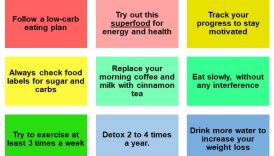The Ultimate Guide to Maintaining a Healthy Heart

Understanding heart health is more vital than ever in today’s fast-paced world. Heart-related conditions are among the leading causes of mortality globally. Recognizing this, many strive to improve their lifestyle choices to ensure a longer, healthier life. This article delves into the various aspects of heart health—covering everything from diet and exercise to stress management and regular check-ups.
- The Ultimate Guide to Maintaining a Healthy Heart
- Why Heart Health Matters
- Understanding Heart Health
- Anatomy of the Heart
- Common Heart Conditions
- Importance of a Healthy Diet
- Key Nutrients for Heart Health
- Foods to Avoid for a Healthy Heart
- Regular Exercise for a Strong Heart
- Cardiovascular Workouts
- Strength Training for Heart Health
- Managing Stress and Mental Health
- Impact of Stress on Heart Health
- Techniques for Stress Reduction
- Quality Sleep for a Healthy Heart
- Importance of Sleep for Heart Health
- Tips for Better Sleep
- Benefits of Regular Check-Ups and Screenings
- Importance of Preventative Care
- Common Heart Health Tests
- Avoiding Harmful Habits for a Healthy Heart
- Effects of Smoking on Heart Health
- Limiting Alcohol Intake
- Maintaining a Healthy Weight
- Link Between Weight and Heart Health
- Tips for Weight Management
- The Role of Genetics in Heart Health
- Understanding Family History
- Genetic Testing for Heart Conditions
Why Heart Health Matters
Heart health is not just a personal concern; it affects families and communities. The heart serves as the central pump for blood circulation, supplying oxygen and nutrients to every cell in the body. Failing to care for it can lead to significant health complications.
- Preventive Steps Matter: Simple lifestyle adjustments can significantly influence heart health.
- Empower Yourself: Knowledge is power when it comes to understanding heart conditions and management strategies.
As we explore these critical factors, we can empower ourselves and others to take actionable steps toward better heart health.
Understanding Heart Health
Gaining insight into the anatomy of the heart and the common conditions it may face is essential for anyone interested in improving their heart health. Knowledge in these areas not only fosters awareness but also encourages proactive measures.
Anatomy of the Heart
The heart is a magnificent organ, often considered the body’s engine room. Here’s a brief overview of its key components:
- Chambers: The heart has four chambers—two atria and two ventricles—that work rhythmically to circulate blood.
- Valves: Four valves prevent backflow and ensure blood flows in one direction.
- Coronary Arteries: These supply blood to the heart muscle itself, which is just as crucial as connecting to the rest of the body.
Common Heart Conditions
Awareness of common heart conditions can lead to earlier diagnoses and treatments. Some prevalent issues include:
- Coronary Artery Disease (CAD): Narrowed arteries from plaque buildup can restrict blood flow.
- Heart Attack: Occurs when blood supply to part of the heart is blocked.
- Heart Failure: The heart struggles to pump effectively, causing symptoms like shortness of breath.
By understanding the heart’s structure and potential issues, individuals can better appreciate the importance of lifestyle choices in maintaining heart health.
Importance of a Healthy Diet
Having a good understanding of heart health isn’t just about anatomy and common conditions—diet plays a crucial role too. A healthy diet can significantly influence heart function and overall well-being.
Key Nutrients for Heart Health
Certain nutrients are particularly beneficial for maintaining a strong heart. Here are some of the most important ones to incorporate into your meals:
- Omega-3 Fatty Acids: Found in fish like salmon, these help reduce inflammation and lower blood pressure.
- Fiber: Whole grains, fruits, and vegetables are high in fiber, which can reduce cholesterol levels.
- Antioxidants: Foods rich in antioxidants, like berries and nuts, can help protect arterial walls.
Foods to Avoid for a Healthy Heart
While some foods benefit heart health, others can jeopardize it. Here are some items to limit:
- Processed Foods: Often loaded with unhealthy fats, sugars, and sodium.
- Trans Fats: Common in fried foods and baked goods, these can raise bad cholesterol levels.
- Excessive Salt: High sodium intake can lead to hypertension, increasing the risk of heart disease.
Embracing a heart-healthy diet not only improves heart function but also enhances one’s overall quality of life. Small changes make a big difference!
Regular Exercise for a Strong Heart
As we traverse the journey of heart health, we can’t overlook the impact of regular exercise. Staying active is a cornerstone for maintaining cardiovascular wellness and should be a vital part of everyone’s routine.
Cardiovascular Workouts
Cardiovascular workouts, or aerobic exercises, are particularly beneficial for heart health. These activities raise your heart rate and improve blood circulation. Some enjoyable options include:
- Walking or Jogging: Easy to incorporate into daily life.
- Cycling: Great for building endurance and strength.
- Swimming: A low-impact workout that’s easy on the joints.
Aim for at least 150 minutes of moderate aerobic activity each week to boost your heart health effectively.
Strength Training for Heart Health
While cardio steals the spotlight, strength training shouldn’t be ignored. Building muscle improves metabolism and enhances overall fitness. Include activities such as:
- Bodyweight Exercises: Push-ups and squats can be done anywhere.
- Weight Lifting: Using free weights or machines targets various muscle groups.
Incorporating strength training twice a week can further enhance heart function while also promoting a healthy weight. Together, these exercises form a robust regimen for a strong heart.
Managing Stress and Mental Health
As we continue to explore heart health, it’s important to recognize how stress and mental well-being can significantly impact cardiovascular conditions. The connection between the mind and heart is often overlooked but warrants attention.
Impact of Stress on Heart Health
Stress triggers the release of chemicals in the body that can raise heart rate and blood pressure. Over time, chronic stress may lead to several heart-related issues, including:
- High Blood Pressure: Increased workload on the heart can contribute to heart disease.
- Impaired Blood Flow: Stress can thicken the blood, expanding the risk of clots.
- Unhealthy Coping Mechanisms: Some may resort to overeating or smoking, which further harms heart health.
Recognizing these effects can motivate individuals to take proactive steps toward managing stress.
Techniques for Stress Reduction
Fortunately, there are effective techniques to combat stress and enhance mental well-being:
- Mindfulness Meditation: Practicing mindfulness can help center thoughts and reduce anxiety.
- Deep Breathing Exercises: Simple breathing techniques can quickly calm the nervous system.
- Physical Activity: Engaging in regular exercise provides a natural outlet for stress.
Incorporating these practices into daily life not only benefits mental health but also promotes a healthier heart. Investing time in stress management is key to achieving overall wellness.
Quality Sleep for a Healthy Heart
As we further delve into heart health, one vital aspect that is often underestimated is the importance of quality sleep. A good night’s rest is not merely a luxury; it’s essential for maintaining a healthy heart and overall wellness.
Importance of Sleep for Heart Health
Sleep plays a crucial role in managing stress, repairing the body, and maintaining a healthy heart. Here’s how quality sleep contributes to cardiovascular health:
- Regulates Blood Pressure: During sleep, the body relaxes, allowing blood pressure to decrease.
- Supports Heart Function: Adequate rest enables the heart to recover and function efficiently.
- Reduces Risk Factors: Poor sleep is linked to increased risks of obesity, diabetes, and hypertension—conditions that can strain the heart.
By understanding the connection between sleep and heart health, individuals can prioritize getting sufficient rest.
Tips for Better Sleep
To enjoy restful nights, consider adopting these helpful strategies:
- Create a Sleep Schedule: Go to bed and wake up at the same time each day.
- Limit Screen Time: Reduce exposure to screens at least an hour before bedtime.
- Establish a Relaxing Routine: Engage in calming activities, like reading or taking a warm bath, to signal your body that it’s time to wind down.
By incorporating these habits, individuals can enhance their sleep quality, promoting not only better mental health but also a healthier heart.
Benefits of Regular Check-Ups and Screenings
As we continue to explore the multifaceted aspects of heart health, it’s essential to highlight the significance of regular check-ups and screenings. Maintaining an open dialogue with healthcare providers can be the key to early detection and effective management of potential issues.
Importance of Preventative Care
Preventative care is like the first line of defense in safeguarding heart health. Here’s why it’s crucial:
- Early Detection: Regular screenings can identify risk factors such as high cholesterol or hypertension before they escalate into serious issues.
- Health Monitoring: Consistent check-ups allow for tracking personal health changes over time and making necessary adjustments.
- Empowerment: Being informed about one’s health fosters a proactive approach to making healthier lifestyle choices.
I remember scheduling my first annual check-up, which revealed elevated cholesterol levels that I had no idea about. The timely intervention made all the difference in my heart health.
Common Heart Health Tests
Below are some standard tests that can help assess heart health:
- Blood Pressure Measurement: A staple in every check-up to monitor cardiovascular risk.
- Cholesterol Screening: Helps determine the levels of good and bad cholesterol in the bloodstream.
- Electrocardiogram (ECG): Assesses the electrical activity of the heart and can detect irregular rhythms.
Incorporating regular check-ups into your health routine can lead to early intervention, helping pave the way for a healthier heart and a better quality of life.
Avoiding Harmful Habits for a Healthy Heart
Having highlighted the importance of regular check-ups and preventative care, it’s critical to address the habits that can undermine heart health. Making conscious choices to avoid harmful behaviors can significantly reduce the risk of cardiovascular disease.
Effects of Smoking on Heart Health
One of the most detrimental habits for cardiovascular health is smoking. It affects the heart in multiple harmful ways:
- Increases Blood Pressure: Nicotine constricts blood vessels, raising blood pressure and heart rate.
- Damages Blood Vessels: Chemicals in cigarettes can lead to atherosclerosis, where arteries harden and narrow.
- Increases Risk of Clots: Smoking increases the likelihood of blood clot formation, which can lead to heart attacks.
A close friend of mine quit smoking after a health scare; their recovery was inspiring and showed how quitting could lead to significant improvements in cardiovascular health.
Limiting Alcohol Intake
While moderate alcohol consumption may have some heart benefits, excessive intake poses serious risks. Here are key points to consider:
- High-Calorie Content: Excessive drinking can lead to weight gain and associated heart risks.
- Heart Rhythm Issues: Large amounts of alcohol can trigger irregular heartbeats or cardiomyopathy.
- Interferes with Medications: Alcohol may interact with common heart medications, reducing their effectiveness.
To promote heart health, aim for moderation—keeping alcohol consumption to within recommended limits. Choosing healthier behaviors is a vital step toward ensuring overall cardiovascular wellness.
Maintaining a Healthy Weight
As we dive deeper into proactive heart health, it’s essential to discuss the role of maintaining a healthy weight. Weight management is not just about aesthetics; it plays a significant part in overall cardiovascular health.
Link Between Weight and Heart Health
There’s a well-documented connection between excessive weight and heart disease. Here are a few important points to consider:
- Increased Blood Pressure: Excess weight can lead to higher blood pressure, putting strain on the heart.
- Elevated Cholesterol Levels: Being overweight often correlates with unhealthy cholesterol levels, increasing the risk of heart disease.
- Diabetes Risk: Obesity is a significant risk factor for type 2 diabetes, which is linked to heart complications.
When I managed to shed some pounds through lifestyle adjustments, my doctor noted improvements in my blood pressure and cholesterol—a true win-win.
Tips for Weight Management
Here are practical tips to help maintain a healthy weight:
- Balanced Diet: Focus on incorporating whole grains, fruits, vegetables, and lean proteins into your meals.
- Regular Exercise: Aim for at least 150 minutes of moderate aerobic activity weekly—something enjoyable to make it sustainable.
- Portion Control: Be mindful of serving sizes, which can prevent overeating.
By focusing on these strategies, individuals can not only achieve a healthy weight but also significantly enhance their heart health, leading to a more vibrant life.
The Role of Genetics in Heart Health
As we navigate the landscape of heart health, it’s important to recognize the role that genetics plays. While lifestyle choices are critical, your family history can significantly impact your cardiovascular risks.
Understanding Family History
Your family history can provide valuable insight into your heart health risk. Here’s why it matters:
- Inherited Conditions: Certain heart conditions, such as hypertrophic cardiomyopathy or familial hypercholesterolemia, can run in families.
- Identifying Risk: Knowing your family health history can help you and your healthcare provider identify potential risks early on.
For instance, I learned about my family’s heart health history during a family reunion, which prompted me to take proactive measures in my own health routine.
Genetic Testing for Heart Conditions
With advancements in medical science, genetic testing has become a viable option for assessing heart disease risk. Here are some key points:
- Targeted Information: Genetic testing can identify mutations associated with hereditary heart conditions.
- Informed Decisions: Understanding your genetic predisposition can guide lifestyle changes and preventive strategies.
- Family Implications: If you carry a genetic risk, family members might also consider testing.
By being informed about genetic influences on heart health, individuals can take proactive steps in collaboration with healthcare professionals to mitigate risks. Knowledge truly is power when it comes to heart health!





